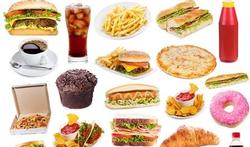Earlier, it was found that junk food affects the hippocampus of laboratory animals, the brain region that is important for memory and also regulates appetite. That is also the case with people. That's what a study, published in the journal Royal Society Open Science, recently showed.
Fast food is addictiveIn the test, a number of students with a healthy weight were divided into two groups. One group ate food rich in saturated fat and added sugars for a week, the other was served a healthy breakfast for two days and allowed to continue their normal diet all other days. Before, during and after dinner, several tests were scheduled. For example, the researchers found that unhealthy eating negatively affected memory, and that those who eat junk food despite a full stomach still crave more food. Since the hippocampus is in mind for memory and appetite, the link was easily laid.
Prolonged unhealthy eating damages the hippocampusThe researchers conclude that when we see good food, we quickly remember how tasty the food was. Normally, our hippocampus suppresses that 'hunger for more' when we are saturated, but after a week of fast food it functions less well, so we still want more. That also explains why eating junk food is so addictive, and why a poorly functioning hippocampus is linked to type 2 diabetes, insomnia, stress and depression. "All these factors are common in Western societies and can be linked to a Western diet (rich in saturated fat and added sugars, ed.) acute and long-term cumulative damage to the hippocampus," the researchers argue. For those who are wondering what is going on with the subjects: three weeks after the experiment, everything worked again as before. After a short period of unhealthy food, the functioning of the hippocampus can recover.




